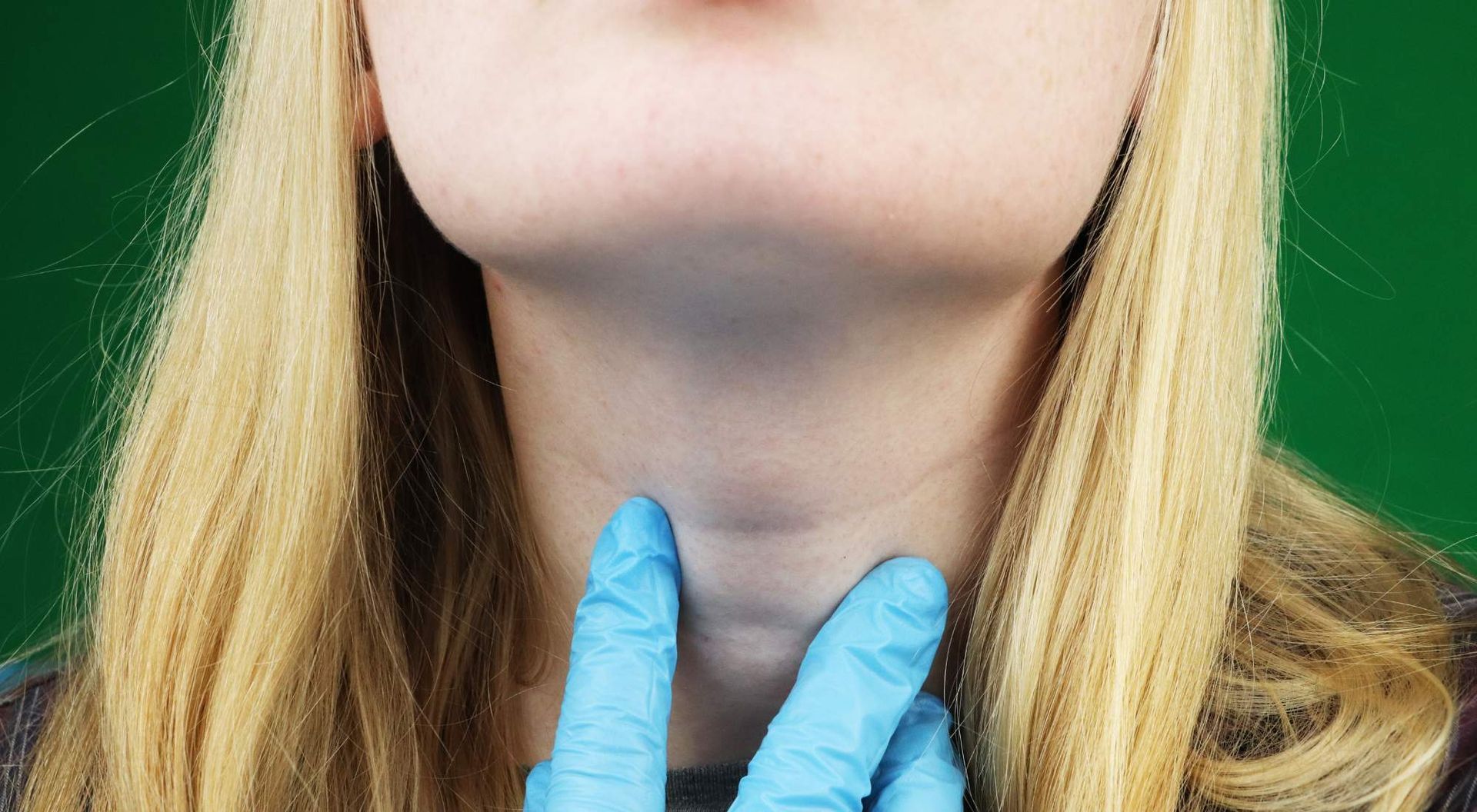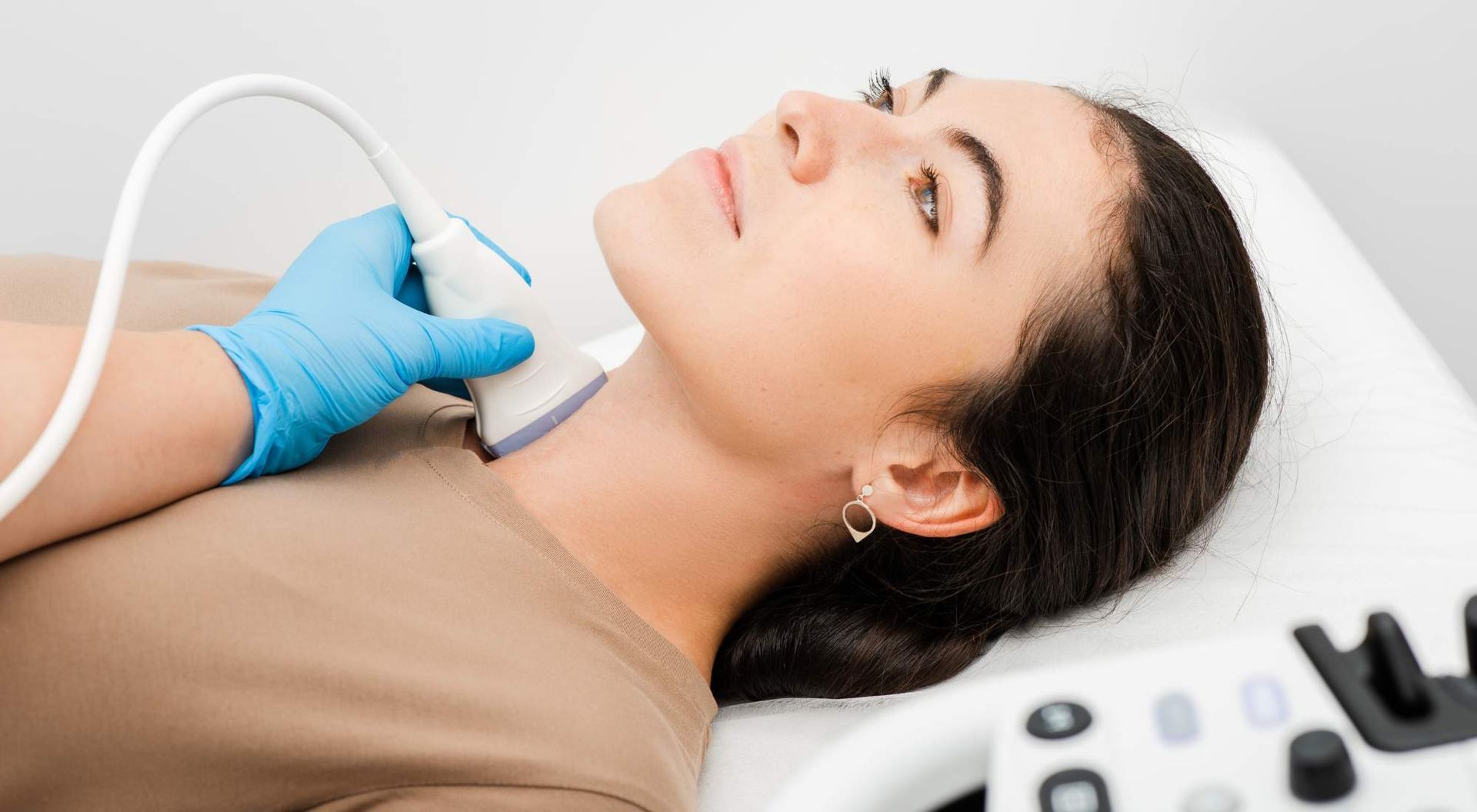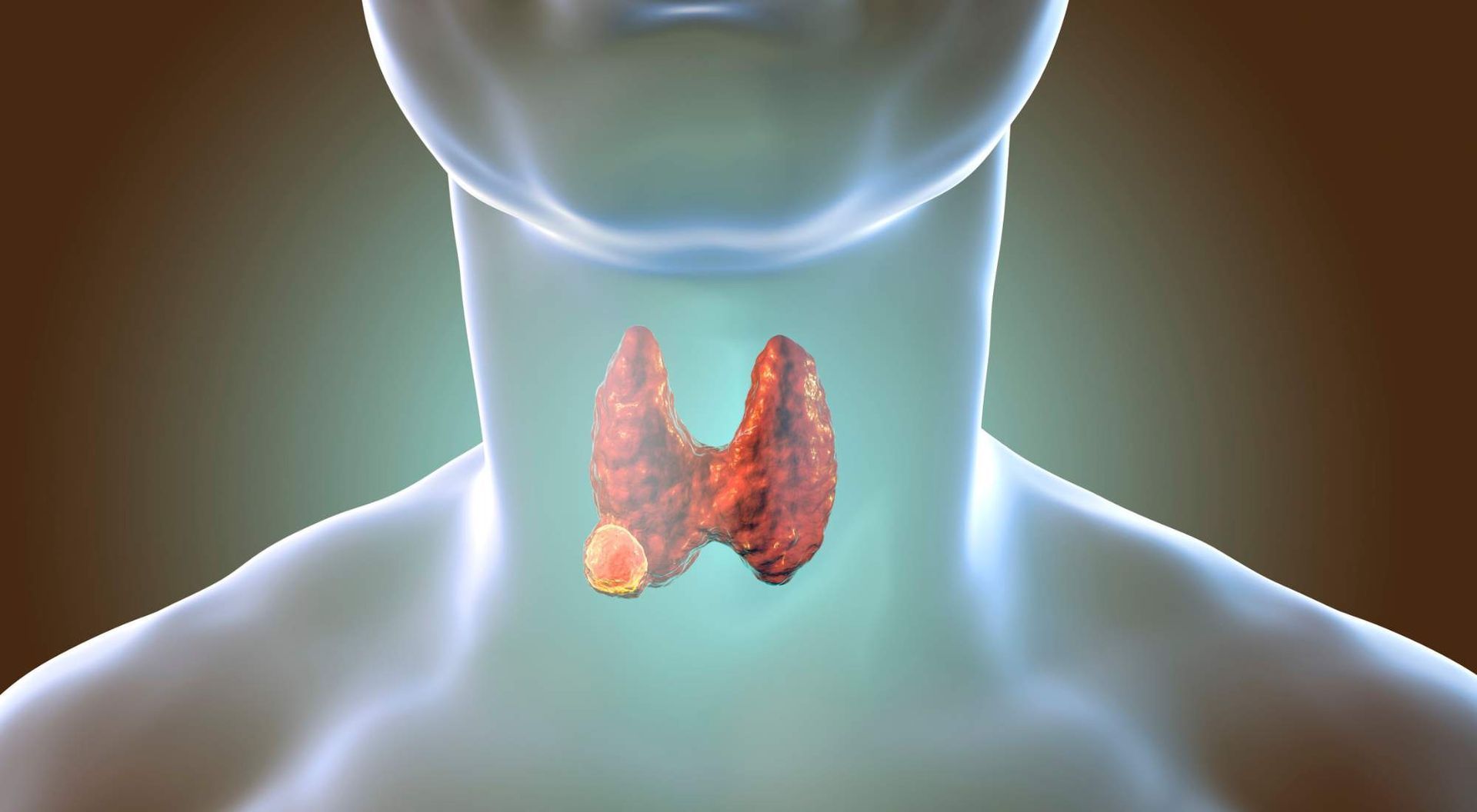Healthcare Professionals Who Treat Thyroid Issues and How To Choose the Best One for You
"The content below is not intended to be a substitute for professional medical advice, diagnosis, or treatment. Always seek the advice of your physician or other qualified health provider with any questions you may have regarding a medical condition."
With so many symptoms associated with poor thyroid health, it can be hard to know when to take action and what kind of healthcare professional can provide the best care.
How much can my primary care provider help? When do I need someone more specialized? What are my treatment options?
There are a variety of practitioners ready to treat any thyroid condition. There are proven medications. There are even foods that can help.
We’ll show you where to start, and where to go from there. This article will help you know what to expect as you take charge of your thyroid health.
Table of Contents
When Should You See a Healthcare Professional To Get Your Thyroid Checked?
When thyroid hormone levels are abnormal, it can result in a variety of symptoms. If you are experiencing any of these symptoms, it’s worth a discussion with your primary care physician:
- Unexplained weight gain
- Trouble falling asleep and/or issues with general fatigue
- Feeling overly sensitive to heat or cold
- Dry, red, or irritated skin, or, skin that feels sweaty/clammy
- Dry/brittle hair
- Heavy menstrual periods, or periods that are missed or irregular
- Heart rate that is either slower than usual or faster than usual
Depending on your symptoms and your test results, one of several thyroid-related conditions could be diagnosed.
The most common issues are an overactive thyroid (known as hypothyroidism), or an underactive thyroid (referred to as hyperthyroidism).
If you are experiencing symptoms that could be due to a thyroid health issue, you should consult with a health practitioner. For some people, a holistic approach — with the help of
HealthierU — can bring great results.
What Is the Best Doctor To See for Thyroid Problems?
The best doctor to see for thyroid problems depends on your situation. Generally, you’ll be starting with your primary care provider to discuss your symptoms.
They may refer you to an endocrinologist — a specialist in hormone disorders — who will make a diagnosis and treatment recommendation.
Treatment could be in the form of medication or a medical procedure. Additionally, if you are working with a holistic practitioner, they may provide natural treatment options.
Primary Care Physician (PCP)
What a PCP Is
A primary care physician is often your first contact regarding healthcare. For example, your family doctor is considered to be your PCP. A general practitioner or a nurse practitioner can also act as your PCP.
A PCP will have completed medical school, and then additional training in some aspect of primary care. This training qualifies them to provide initial care for a wide variety of illnesses.
A long-term relationship with a PCP who understands your unique health history is highly beneficial. That continuity of care can help catch issues early and can help speed the diagnosis of an illness.
How PCPs Help Treat Thyroid Issues
A primary care provider has the expertise to help treat certain thyroid issues. For example, there are some blood tests they can perform:
- TSH Test: This is typically the initial test for a thyroid issue. Your pituitary gland produces TSH, which signals your thyroid to release its T4 hormone.
- Thyroid Panel: If TSH levels are abnormal, your PCP may request additional testing to determine T3 and T4 levels. Understanding these levels will help reveal the specific type of thyroid condition that may be present.
Depending on the nature of the thyroid issue, your PCP may be able to prescribe the appropriate medication. For more complex issues, they may refer you to a specialist.
Endocrinologist/Thyroidologist
What Endocrinologists and Thyroidologists Are
An endocrinologist is a specialist in the diseases related to our endocrine system, which is the system of hormones in our body. A doctor must complete an additional two- or three-year fellowship — on top of the standard medical school and residency — to become an endocrinologist.
Thyroidologists (or thyroid specialists) are endocrinologists who have decided to focus the majority of their care on thyroid patients. They may have additional training in advanced diagnostics and treatment procedures for difficult or complex thyroid conditions.
How Endocrinologists and Thyroidologists Help Treat Thyroid Issues
While your PCP may feel quite comfortable diagnosing and treating your thyroid condition, they may refer you to a specialist even if only to get an “extra set of eyes” on the situation.
Some experts recommend that you see an endocrinologist at least at the beginning, to have them review your test results and the treatment plan your PCP recommended.
If you have multiple medical problems, this could complicate your diagnosis or treatment. Thyroid hormones impact many aspects of our physiology, and endocrinologists have the depth of knowledge to provide care when the situation is complex.
If your thyroid gland has already become enlarged, or if you have any nodules/growths on your thyroid, a thyroidologist should be engaged. They can perform the right ultrasound or radiology exam to understand what may be causing the issue — which in rare cases could be cancer-related.
Holistic Practitioner
What a Holistic Practitioner Is
Holistic medicine is the practice of considering the “whole person” when treating conditions. This approach considers the mind, body, spirit, and the surrounding environment to be highly connected.
Instead of isolating a specific organ system to treat, holistic health practitioners look at all aspects of the patient’s condition and situation.
Holistic health is compatible with conventional Western medicine and can even guide part of a patient’s treatment plan alongside standard surgical or pharmacological treatments. A variety of practices may be utilized, ranging from naturopathy and nutrition to more emotional/spiritual practices such as meditation and
Reiki.
How Holistic Practitioners Help Treat Thyroid Issues
Holistic practitioners typically look at the underlying factors that support healthy thyroid function and may recommend certain supplements or dietary changes.
For example, your holistic practitioner may help you design a diet with foods rich in iodine and tyrosine as a natural treatment for hypothyroidism. Iodine and tyrosine (an amino acid found in various foods) are the key ingredients in the thyroxine (T4) hormone, so ruling out any deficiencies is prudent.
Certain medicinal herbs are known to support healthy thyroid function. Experienced holistic practitioners will know these herbs, and how they can be effectively incorporated into a treatment plan.
For a holistic practitioner who treats thyroid issues, head to HealthierU for a consultation to shed light on how you can support your thyroid health.
5 Signs That You May Need To See a Specialist Who Treats Thyroid Issues
We have talked about how your primary care provider will generally be your first stop, and that there is a lot they can help with. Here are some of the reasons why you would want to go to a specialist for treatment:
#1: Your Thyroid Symptoms Don’t Improve With Treatment
With thyroid medication, it can take several weeks before you have a noticeable improvement in your symptoms. If many weeks have gone by and you are not feeling any relief, then it may be time to see a specialist.
An endocrinologist or thyroid specialist can help adjust the dosage of your medication or may recommend an alternative medication to try.
#2: Your Thyroid Is Enlarged or You Have a Goiter
Since your thyroid is located in the front of your neck, you can visibly tell if it is enlarged. An enlargement of part or all of your thyroid gland is called a “goiter”.
Sometimes the goiter can be so small that it’s only noticed during unrelated physical examinations, but it can grow much larger if not addressed. Depending on the size and position of the enlargement, it may start to impact breathing or your voice.
There are several causes of thyroid enlargement. It can be related to abnormal hormone production, certain autoimmune disorders, or irregular cell growth. A specialist will know which examinations and tests should be performed to provide a diagnosis.
#3: You Have Thyroid Nodules or Lumps
If you have any nodules or lumps that have formed on your thyroid, a thyroidologist should be involved. While it is not fully clear what can cause these irregular cell growths, they don’t usually cause a significant problem.
However, there is a risk this irregular cell growth is due to thyroid cancer. This is a rare, but
highly treatable, form of cancer.
#4: You Are Attempting To Conceive or Are Pregnant
A successful pregnancy depends on a healthy mother — especially in relation to hormone levels. Improper thyroid health can make conception very difficult, and can also increase the risk of miscarriage.
There are considerations for men as well. Hyperthyroidism can cause a significant reduction in sperm count, making it harder to conceive. Sperm count generally normalizes once thyroid treatment takes effect.
If you have a confirmed or suspected thyroid health issue and you are planning a pregnancy, then it is important to work with a thyroid specialist.
They will review your medical history, prescribe pregnancy-safe treatment, and ensure your blood levels support a healthy pregnancy. You can expect multiple check-ups with your specialist throughout the pregnancy to monitor your levels and symptoms.
#5: Your Hypothyroidism Is Caused by a Pituitary Gland Disorder
The thyroid-stimulating hormone — TSH — is secreted by the pituitary gland and is responsible for signaling thyroid hormone production. As a result, a disorder in pituitary function can affect your thyroid as well.
When hypothyroidism is caused by low TSH production, this is referred to as secondary hypothyroidism.
There are other hormones the pituitary gland also secretes, each having unique and important functions within the body. This means you may experience additional symptoms unrelated to thyroid function.
Endocrinologists diagnose and treat matters of the endocrine system, of which the pituitary gland is a part. They will work with you to take the correct action regarding your pituitary gland, while also prescribing the right thyroid treatment to account for the TSH issue.
HealthierU: Providing Resources and Help for Thyroid Issues Through a Holistic Nutritional Approach
If you are dealing with any of these signs of thyroid issues in men, don’t hesitate to consult HealthierU for support.
Known for providing excellent hypothyroidism treatment in Brooklyn, we also serve patients with other hormonal issues and physical conditions, including lower back pain, digestive issues, acne, acid reflux, constipation, and hair loss.
Dr. Donna Sergi is a holistic nutritionist and chiropractor who has practiced for over 25 years, helping her patients restore their health safely, naturally, and effectively. You will be encouraged to take advantage of the power of a diet and supplementation program to allow your whole body to work at an optimal level.
To address the unsatisfactory symptoms of thyroid disorder that have negatively impacted your quality of life, visit HealthierU and start your journey to improving not only these but also your overall health.






